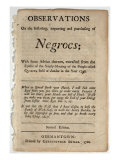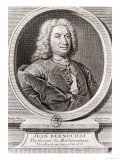|
|
|
Dorothea Beale
b. 3-21-1831; Bishopsgate, England
d. 11-9-1906
Dorothea Beale was dedicated to educating women, becoming head of Cheltenham Ladies' College and founding St. Hilda's College, a teacher's training college. She was also a suffragette. |
|
|
|

Catharine Beecher
(no commercially
available image)
|
Catharine Beecher
b. 9-6-1800; East Hampton, NY
d. 5-12-1878
Educator Catherine Beecher, who dedicated her life to women’s education and vehement support of kindergarten into children's education, is better remembered as the daughter of clergyman Lyman Beecher and sister of author Harriet Beecher Stowe, and theologians Henry Ward Beecher and Charles Beecher.
Catharine Beecher quotes ~
• “The great want of our race is perfect educators to train new-born minds, who are infallible teachers of what is right and true.”
• “The principle of subordination is the great bond of union and harmony through the universe.”
• “As liberty and intelligence have increased the people have more and more revolted against the theological dogmas that contradict common sense and wound the tenderest sensibilities of the soul.”
|
|
|
|
Alexander Graham Bell
b. 3-3-1847; Edinbergh, Scotland
d. 8-2-1922; Nova Scotia (diabetes)
Alexander Graham Bell, who is best remembered as an inventor of the telephone and the first to patent it, was a teacher at the Pemberton Avenue School for the Deaf in Boston.
Alexander Graham Bell quotes ~
• “Before anything else, preparation is the key to success.”
• “When one door closes, another opens; but we often look so long and so regretfully upon the closed door that we do not see the one which has opened for us.”
• “America is a country of inventors, and the greatest of inventors are the newspaper men.”
• “Great discoveries and improvements invariably involve the cooperation of many minds. I may be given credit for having blazed the trail, but when I look at the subsequent developments I feel the credit is due to others rather to myself.”
• “A true inventor can no more help inventing than he can help thinking or breathing.”
• Reluctant Genius: Alexander Graham Bell and the Passion for Invention
|
|
|
|
|
|
|
Jeremy Bentham
b. 2-15-1748; London, England
d. 6-6-1832
Political radical Jeremy Bentham, was a jurist, philosopher, and legal and social reformer, who advocated utilitarianism (the idea that the moral worth of an action is determined solely by its utility in providing happiness or pleasure), animal rights, and welfare. He was one of the founders of the University College London.
Jeremy Bentham quote ~
• “The question is not, “Can they reason?” nor, “Can they talk?” but rather, “Can they suffer?”
• “It is the greatest good to the greatest number of people which is the measure of right and wrong.”
|
|
|
|
Henri Bergson
b. 10-18-1859; Paris, France
d. 1-4-1941; Paris
Henri Bergson, a major philosophical influence in the first half of the 20th century, served as a philosophy professor and was awarded the 1927 Nobel Prize in Literature “in recognition of his rich and vitalizing ideas and the brilliant skill with which they have been presented”.
Henri Bergson quotes ~
• “To exist is to change, to change is to mature, to mature is to go on creating oneself endlessly.”
• “There is no greater joy than that of feeling oneself a creator. The triumph of life is expressed by creation.”
• Creative Evolution
|
|
|
|
Johann Bernoulli (also known as John or Jean)
b. 7-27-1667; Basel, Switzerland
d. 1-1-1748; Basel
The Bernoulli's were a mathematically brilliant family. John, the father, was a mathematician and educator (Leonard Euler was his student), and who, along with his brother Jakob (Bernoulli numbers), were among the first to understand the new calculus (introduced to as students of Leibniz) and to apply calculus to problems.
John was also the father of mathematician Daniel Bernoulli (1700-1782) who is remembered for his principle of fluid mechanics stating that “as the speed of a moving fluid increases, the pressure within the fluid decreases” - or why an airplane wing is shaped the way it is.
|
|
|
|
Wendell Berry
b. 8-5-1934; Henry Co., KY
Author and farmer Wendell Berry is well known for his advocacy of “sustainable agriculture, appropriate technologies, healthy rural communities, connection to place, the pleasures of good food, husbandry, good work, local economics, the miracle of life, fidelity, frugality, reverence, and the interconnectedness of life.”
Berry taught creative writing at the University of Kentucky.
Wendell Berry quotes ~
• “Don't own so much clutter that you will be relieved to see your house catch fire.”
• “The care of the Earth is our most ancient and most worthy, and after all our most pleasing responsibility. To cherish what remains of it and to foster its renewal is our only hope.”
• “Do unto those downstream as you would have those upstream do unto you.”
• “It may be that when we no longer know which way to go that we have come to our real journey. The mind that is not baffled is not employed. The impeded stream is the one that sings.”
• “A community is the mental and spiritual condition of knowing that the place is shared, and that the people who share the place define and limit the possibilities of each other's lives. It is the knowledge that people have of each other, their concern for each other, their trust in each other, the freedom with which they come and go among themselves.”
• “Let us have the candor to acknowledge that what we call “the economy” or “the free market” is less and less distinguishable from warfare.”
• “A corporation, essentially, is a pile of money to which a number of persons have sold their moral allegiance.”
• “Rats and roaches live by competition under the laws of supply and demand; it is the privilege of human beings to live under the laws of justice and mercy.”
• “Whether we and our politicians know it or not, Nature is party to all our deals and decisions, and she has more votes, a longer memory, and a sterner sense of justice than we do.”
• “One of the most important resources that a garden makes available for use, is the gardener's own body. A garden gives the body the dignity of working in its own support. It is a way of rejoining the human race.”
• “We have lived our lives by the assumption that what was good for us would be good for the world. We have been wrong. We must change our lives so that it will be possible to live by the contrary assumption, that what is good for the world will be good for us. And that requires that we make the effort to know the world and learn what is good for it.”
• “Nobody can discover the world for somebody else. Only when we discover it for ourselves does it become common ground and a common bond and we cease to be alone.”
• “There are no unsacred places; there are only sacred places and desecrated places.”
|
|
|
|
Mary McLeod Bethune
b. 7-10-1875; Mayesville, SC
d. 5-18-1955; Daytona Beach, FL
Mary McLeod Bethune, daughter of former slaves, was a tireless educator best remembered as a the founder of the Daytona Educational and Industrial Training School for Negro Girls in 1904. The school evolved into the Bethune-Cookman University.
Mary McLeod Bethune quotes ~
• “Invest in the human soul. Who knows, it might be a diamond in the rough.”
• “If we accept and acquiesce in the face of discrimination, we accept the responsibility ourselves. We should, therefore, protest openly everything . . . that smacks of discrimination or slander.”
• “Cease to be a drudge, seek to be an artist.”
• “The whole world opened to me when I learned to read.”
• “The true worth of a race must be measured by the character of its womenhood.”
• “Next to God we are indebted to women, first for life itself, and then for making it worth living.”
• Black History posters
|
|
|














